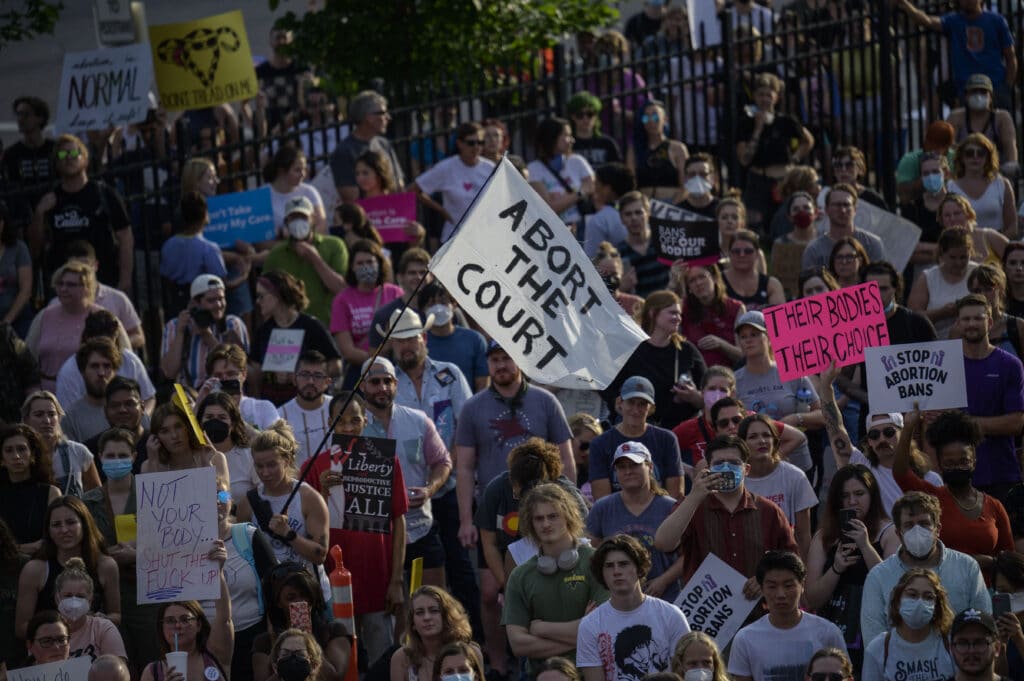Hospitals briefly stop providing morning-after pill amid confusion over abortion ban

Plan B and Aftera sit locked on a shelf in a pharmacy in Washington, DC(Photo by Stefani Reynolds / AFP) (Photo by STEFANI REYNOLDS/AFP via Getty Images)
Hospitals in Kansas City, Missouri briefly stopped providing the emergency contraceptive Plan B after the overturning of Roe v Wade.
The St. Luke’s Health hospital chain, which operates 17 sites, stopped distributing Plan B, sometimes known as the morning-after pill, on Tuesday (28 June).
Officials were concerned doctors could end up facing criminal charges under the state’s abortion ban, but subsequently said the hospitals would resume offering the pill on Wednesday (29 June) after receiving clarification.
Missouri is one of states that had enacted trigger laws that would ban abortion in the event of Roe being overturned.
Attorney general Eric Schmitt’s office released a statement shortly after the Supreme Court ruling effectively ending abortion in Missouri, enacting a law known as Section 188.017 which said “notwithstanding any other provision of law to the contrary, no abortion shall be performed or induced upon a woman, except in cases of medical emergency…”
St. Luke’s Health officials said that the “ambiguity” of the law and general uncertainty as to what it entails for future contraceptive distribution continues to “cause grave concern and will require careful monitoring.”
In a statement reported by ABC News, the organisation said that it “is aware of and continues to closely monitor legal developments”.

Abortion rights activists protest outside the Planned Parenthood Reproductive Health Services Center after the overturning of Roe Vs. Wade by the US Supreme Court, in St. Louis, Missouri (Photo by ANGELA WEISS / AFP) (Photo by ANGELA WEISS/AFP via Getty Images)
Speaking to ABC News, Republican state representative Nick Schroer, who sponsored the trigger bill, said the intent was not “going to limit access to Plan B”
“If we wanted to then that would need to be a discussion this next legislative session,” he said.
Since the Supreme Court’s decision to overturn the 1973 Roe v Wade ruling by a vote of five to four, several states have been confused and unsure about how the implementation of state-specific legislation should be carried out.
Many have also warned that the ruling sets a precedent for other established rights to be stripped away, such as same-sex marriage or libel laws designed to protect journalists.
Justice Clarence Thomas suggested that he is interested in repealing those rights in his concurring opinion on the decision, saying: “In future cases, we should reconsider all of this court’s substantive due process precedent, including Griswold [contraceptive legislation], Lawrence [which ruled that ‘sodomy’ bans were unconstitutional], and Obergefell [universal same-sex marriage legislation].”
After a draft ruling on Roe v Wade was leaked, president Joe Biden warned of precedent repeal could set.
“What happens if a state changes the law saying that children who are LGBTQ+ can’t be in classrooms with other children?”

